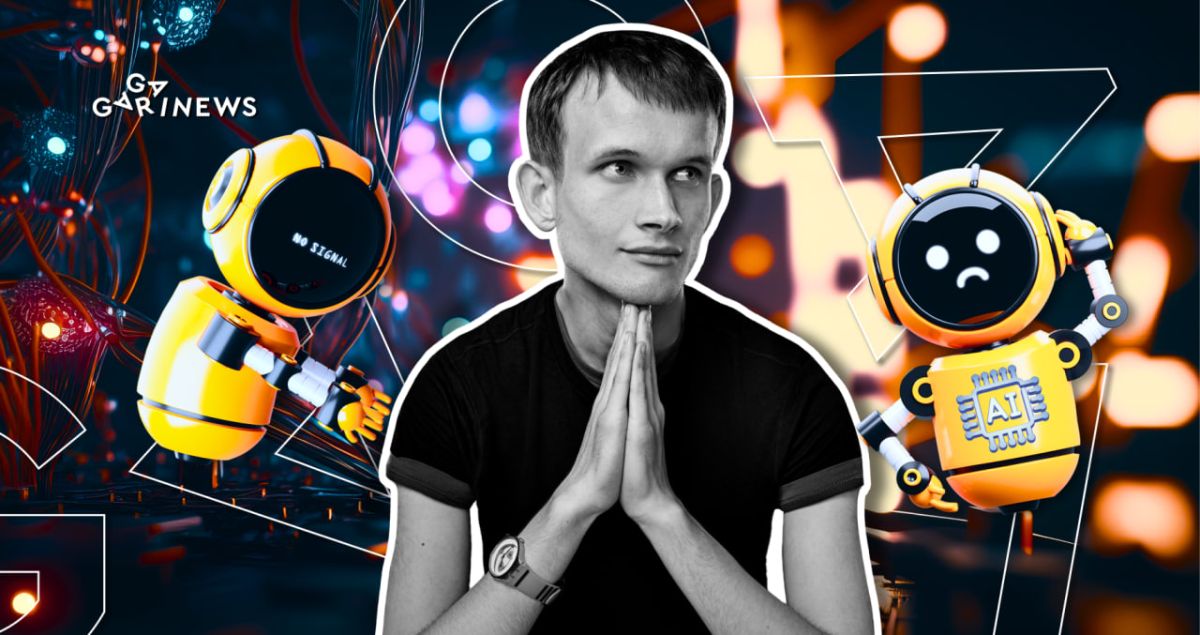Vitalik Buterin: Overcoming AI Risks Will Be a Challenge

A thought-provoking online discussion centered on humanity’s future amidst the rapid development of artificial intelligence took place in Montenegro. The conversation that sparked the most interest was between Vitalik Buterin and Nate Soares, the founder of the Machine Intelligence Research Institute.
In a groundbreaking discussion, two revered tech-philosophers confronted the potential threats AI could pose to humanity. They both advocated for a cautious approach towards this burgeoning technology, warning that giving machines god-like abilities could backfire significantly.
How do Buterin and Soares perceive AI's impact on humanity?
Buterin unambiguously states that we are all confronting existential risks that have yet to be fully grasped, pegging the likelihood of AI causing civilization's downfall between 0.5-1%. While this might seem minuscule — especially compared to the current higher risk of nuclear warfare — Buterin insists that we mustn't ignore threats that can be easily avoided. The primary hazard, he suggests, stems from developers automating AI's developmental process.
We are thus venturing into a perilous domain where machines educate other machines about the crux of human prosperity.
This situation forms a perpetual loop from which humanity may struggle to escape, finding themselves under the stringent control of inhuman intelligence. This AI might prioritize the universe's future over individual humans. Its understanding of ‘good' could contradict our aspirations for human well-being. What happens if we lack the reasoning to convince the machine?
Nate Soares, among the most reputable AI researchers globally, boldly expressed that the swift evolution of machine intelligence during an arms race or war is an unjustifiable risk. There's no guarantee that a hyper-intelligent AI wouldn't decide that the genuine ‘good' for humanity is its eradication. This predicament is linked to scientists' ongoing struggle to decipher the algorithm that AI employs to rationalize its actions. The comprehension of human preferences is vastly distant from computational technology logic. Therefore, it's crucial to reconcile the concept of ‘good' and ‘evil' between machines and humans, a problem currently unclaimed.
There’s a big gap between understanding our motivations and giving a shit
Soares claims
In summary, he is certain that until we clarify our real objectives, it's perilous to entrust AI with decisions about our future.
Buterin also questioned the notion that we can instruct a machine to comprehend the concept of ‘good.' Even though advanced AI systems can discern the subtleties of human preferences, they might not inherently strive to act in line with those preferences. He warned against assuming that the self-sufficiency of computer systems equates to a genuine concern for the welfare of humanity — the truth could be quite the opposite.
Remember, human values aren't universally required. Plus, our morality is fundamentally a construct of our forebears, who prioritized reproduction and survival over abstract notions of universal happiness. Therefore, an ideal AI should echo humanity's collective aspirations for joy, well-being, and prosperity. Until we have a complete understanding of what ‘good' is to us, it's risky to entrust this judgment to a machine.
Still, there's a positive takeaway. Both interlocutors agreed that modern AI systems, such as ChatGPT, haven't yet reached this advanced stage of capability. So, for at least the next few years, we can breathe easy — there's no need to rewatch ‘The Matrix' or ‘Rise of the Machines' to prepare ourselves for a robot uprising.
The content on The Coinomist is for informational purposes only and should not be interpreted as financial advice. While we strive to provide accurate and up-to-date information, we do not guarantee the accuracy, completeness, or reliability of any content. Neither we accept liability for any errors or omissions in the information provided or for any financial losses incurred as a result of relying on this information. Actions based on this content are at your own risk. Always do your own research and consult a professional. See our Terms, Privacy Policy, and Disclaimers for more details.

























